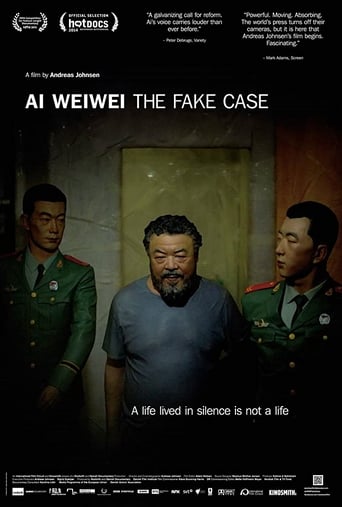

Ai Weiwei: The Fake Case provides an interesting, provocative look at the oppression of the People's Republic of China, focusing on the prosecution of artist Ai Weiwei on trumped up tax charges. Although it at times could benefit from greater background on the legal and political situation, it ultimately paints a compelling portrait of struggle against an overbearing state.The film does not make its point through graphic depictions of torture or by rattling off statistics of people imprisoned or executed. Rather, it emphasizes the human impact of persecution at an individual level. We watch as Ai Weiwei and his family deal with the fallout of his imprisonment and house arrest. We see surprisingly frank discussions with his legal team in which his lawyers matter of factly acknowledge the dirty tricks used by the police. We hear the artist's mother express fear for her son.This human approach has advantages and disadvantages. On one hand, we do not get much background on how the Chinese legal system works or why the Chinese government pursues Ai Weiwei. We see the artist play fast and loose with the restrictions imposed by the Chinese government during his probation with no apparent consequences, even though he is obviously under heavy surveillance. No explanation is given for the lack of retribution. Nevertheless, the film gradually paints an unsettling portrait of a society on the edge, still mired in authoritarianism and looking toward an uncertain future.We also see strength in the face of adversity. Ai Weiwei maintains a sense of humor throughout and even takes small steps to defy the Chinese authorities. Such courage in the face of state authority is inspiring. (Though one must wonder whether a less prominent dissident could get away with as much.)This documentary saves its strongest blow for its conclusion. We see the art installation based on Ai Weiwei's imprisonment, smuggled out of the country in several boxes. Although they don't depict anything horrific, the sheer starkness of how they depict the surveillance and interrogations he endured gets across the true brutality of the Chinese state.
... View More